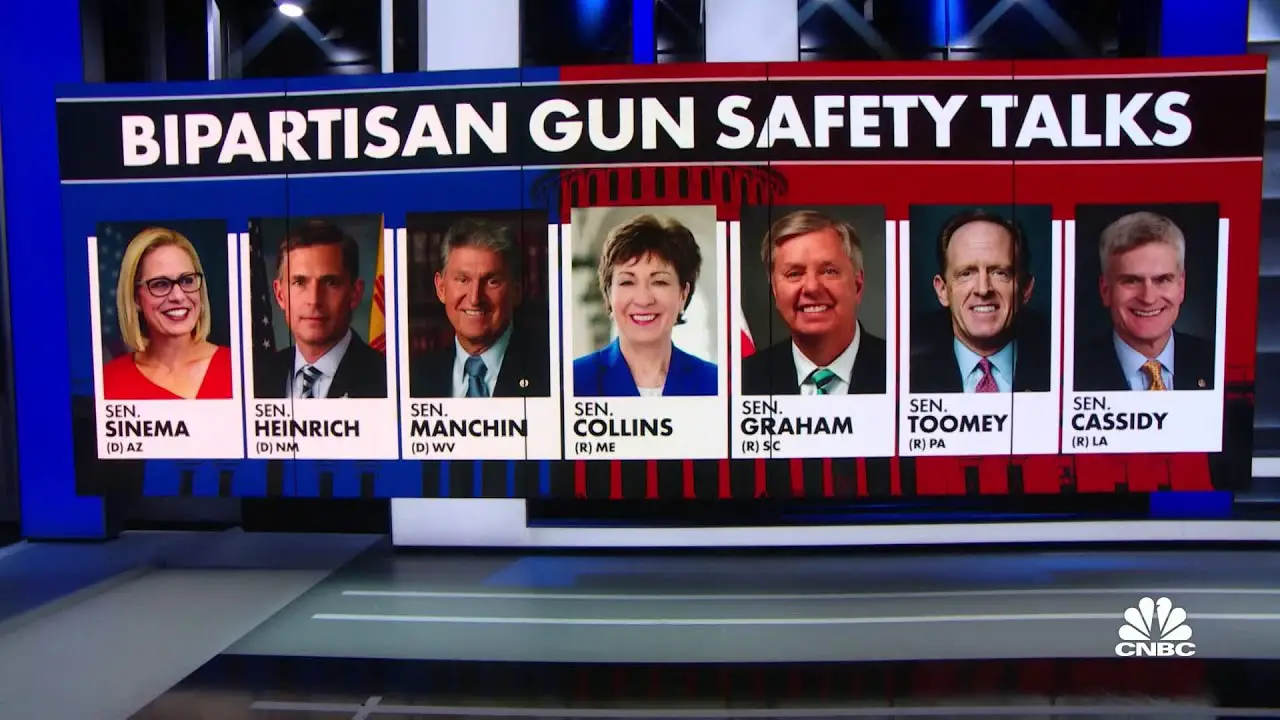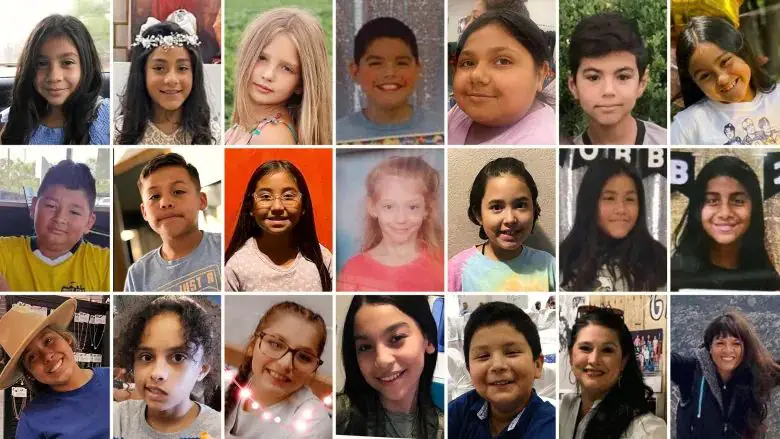For all the calls of urgency and inflammatory remarks from Democrats in recent days, both parties are approaching the topic of new gun legislation cautiously.
After initially saying Democrats would try to ram through a slate of bills that wouldn’t pass the Senate, Chuck Schumer now says negotiations will begin next week on a “modest” bipartisan piece of legislation to make incremental changes addressing gun safety in some form.
Republican Senators John Cornyn and Lindsey Graham, among others, will spearhead the effort for the GOP working next week with several Democratic counterparts, including Connecticut’s Chris Murphy, and other Democrats, to find any common ground in areas like extending so-called “red flag” laws to all 50 states and expanding access to mental health services:
A bipartisan group of nine senators met Thursday afternoon to chart out a path for negotiations.
They say their top priorities are proposals to expand background checks and encourage states to set up red flag laws to prohibit people deemed dangerous to themselves or others from owning firearms.
Democrats acknowledged from the outset that whatever deal they get is likely to be modest, since it needs at least 10 Republican votes to overcome a filibuster.
“If they’re successful, and I hope they are successful, I hope I’ll support it. I expect I will, but I’m certainly not going to be satisfied,” Sen. Ben Cardin (D-Md.) said of the bipartisan negotiations on gun control legislation.
“I know the dynamics here. The assault weapons [ban] is not going to be in that package,” he said.
Another proposal favored by many Democrats, to ban high-capacity magazines, is also off the table in the bipartisan negotiations.
There have been bipartisan efforts in the past but they’ve often ended in defeat when neither side could agree on the scope of the reform. This time could be different if Democrats are willing to leave aside items like the “assault weapons ban,” for example, in favor of changes that could be enacted immediately and perhaps make a difference sometime in the near future.
Unfortunately, some of the items being discussed would seem to have no impact on the Uvalde school shooting that happened earlier this week:
Right now it appears legislation to encourage states to enact red flag laws has the best chance of winning 60 votes on the Senate floor. But it’s a relatively modest proposal, one that didn’t even get a vote in 2013 after 20 children were killed at Sandy Hook Elementary School.
“Red flag laws are certainly something that matter and something that Republicans have been open to,” Murphy said.
Nineteen states already have red flag laws on the books, including New York, where an 18-year-old suspect allegedly killed 10 people with a Bushmaster assault-style rifle at a Buffalo supermarket on May 14. Connecticut enacted the nation’s first red flag law in 1999, but that didn’t stop a 20-year-old shooter from killing 26 people at Sandy Hook, also with a Bushmaster assault-style rifle.
As noted, regarding “red flag” laws, the state of New York recently enacted such a law in 2019 yet the Buffalo shooter wasn’t “flagged” by anything despite warnings. It’s hard to know if a nationwide federal “red flag” law would’ve done anything to stop the massacre in Uvalde from happening either. Once again, there were warning signs that the shooter was unstable, but nothing that caught the attention of the right authorities.
Other items have been discussed as well such as raising the minimum age to purchase an AR-15 style rifle from 18 to 21. This type of change might’ve prevented the sale of the weapons used at the Uvalde elementary school, at least the sale from a federally licensed dealer following the law. That provision, however, seems unlikely to pass and might not even pass legal muster if challenged in court.
The other major provision being discussed would expand federal background checks beyond purchases made from a licensed dealer to also include a requirement for private sales or essentially any firearm sale or transfer. Again, though, the shooter in Uvalde passed a background check with no prior criminal history, and if a private party simply decided to ignore the law, the gun would be transferred anyway.
Most if not all of these young male shooters have things in common. They’re “loners” in the sense that they have a small or minimal circle of friends. They often have troubled families and often have warning signs that they could pose a threat to themselves or others, but not enough for someone to raise suspicion or actually alert authorities. They are also often on anti-depressant drugs or have dealt with other mental or emotional illnesses that occur during their juvenile years with no bearing on an adult criminal or mental health record.
Sadly, this profile seems too common, courtesy of Matt Walsh on Twitter:
Start with a boy. Take away his father. Sit him in front of a screen all day. Feed him p-rn. Feed him an endless stream of content. Give him no moral formation. No guidance. No companionship. Give him drugs. Isolate him.
That’s how you make a school shooter. Rinse and repeat.
There likely is no real “solution” to preventing this type of violence, but there are things that could mitigate it or make it harder for a killer to obtain weapons. There very clearly needs to be more attention paid to the mental health of the nation’s youth after the year or more of Covid isolation and, in many cases, stable things such as school and home life suffering as a result.
There is a mental health crisis brewing among young people and it’s being documented more and more every month now that those in charge are willing to admit the damage they inflicted on the country with Covid lockdowns and school closures. Many observers warned of these dangers at the time, but everything done in the name of Covid was always so much more important.
In January, the American Psychological Association called the mental health of children a “crisis” following the disruptions of Covid. None of this is to say that school shootings or deranged psychopathic individuals didn’t commit murder or mass murder before Covid, but there has been a noticeable uptick in violent crimes of all kinds since 2020.
Not everyone has been or will be able to emerge from two years of disruption to life unscathed. There are people, both young and old, that are more broken than we can comprehend and some of them turn violent and turn into mass murderers. None of this is to excuse the Uvalde shooter, he got exactly what he deserved, if only it happened before he had a chance to murder innocent women and children in the process.
Lawmakers had better take a long hard look at the result of their lockdown policies and the way the lives of children were disrupted to the point of altering the trajectory of their lives in many cases.
I refuse to use the shooter’s name because he deserves no more publicity. The only names and faces that matter are these:
Donate Now to Support Election Central
- Help defend independent journalism
- Directly support this website and our efforts

